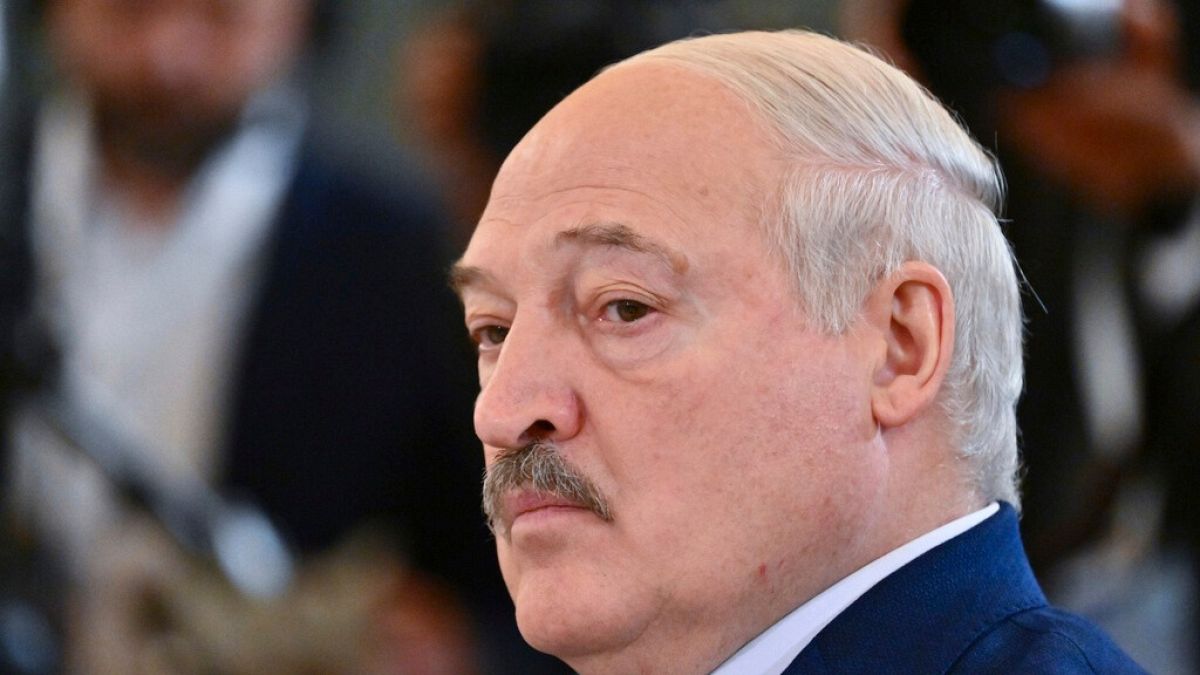Belarusian President Alexander Lukashenko recently accused the West of inflating facts to put pressure on the EU and NATO and called for unconditional negotiations between all sides involved in the conflict. Speaking at the Minsk International Conference on Eurasian Security, Lukashenko criticized reports of North Korean troops being deployed in Russia, stating that no one had seen any Pyongyang soldiers on the frontline in Ukraine. Lukashenko’s regime has faced Western sanctions due to fraudulent elections and violent crackdowns on opposition, leading to Belarus becoming a staunch supporter of Russia. The alliance between Lukashenko and Russian President Putin has allowed Russian troops and missiles to be stationed in Belarus, serving as a staging area for Russia’s war in Ukraine.
At the same conference, Russian Foreign Minister Sergey Lavrov announced plans for Moscow to sign a treaty on comprehensive strategic partnership with Iran in the near future. This treaty aims to strengthen cooperation in the defense sector and promote peace and security at regional and global levels. Lavrov criticized Ukrainian President Volodymyr Zelenskyy’s peace formula, calling it a “dead-end” and “stupid”. He also described Zelenskyy’s victory plan as “schizophrenic” and emphasized the need for long-term reliable security guarantees in order to achieve stability in the Eurasian continent. Despite claims by Moscow, no evidence has been provided to support allegations of aggressive intentions from NATO or the West towards Russia, which the Kremlin cited as a justification for its invasion of Ukraine in early 2022.
President Lukashneko’s call for unconditional negotiations and criticism of Western involvement in the conflict reflects Belarus’s close alignment with Russia and its support for Moscow’s actions in Ukraine. The alliance between Lukashenko and Putin has allowed Russian troops and missiles to be stationed in Belarus, providing strategic support for Russia’s military operations in Ukraine. Lukashenko’s regime has faced international criticism and sanctions for fraudulent elections and violent crackdowns on opposition, leading to Belarus becoming increasingly isolated from the West. The escalation of tensions in the region has prompted calls for dialogue and peaceful resolution to the conflict, with Lukashenko urging all sides to come to the negotiation table without preconditions.
Russian Foreign Minister Lavrov’s announcement of plans to sign a treaty of comprehensive strategic partnership with Iran highlights Moscow’s efforts to strengthen alliances and expand its influence in the region. While criticizing Zelenskyy’s peace formula and victory plan, Lavrov emphasized the need for long-term security guarantees to achieve stability in the Eurasian continent. Despite Moscow’s allegations of aggressive intentions from NATO and the West, no evidence has been provided to support these claims. The lack of concrete evidence raises questions about the true motivations behind Russia’s invasion of Ukraine and the ongoing conflict in the region. The Minsk International Conference on Eurasian Security served as a platform for regional leaders to discuss and address the escalating tensions and seek peaceful solutions to the ongoing crisis.
In conclusion, President Lukashenko’s accusations of the West inflating facts and President Zelenskyy’s peace formula being criticized as “stupid” highlight the complex geopolitical dynamics at play in the region. The close alliance between Belarus and Russia, along with Moscow’s efforts to strengthen partnerships with countries like Iran, underscores the shifting power dynamics in the Eurasian continent. The lack of concrete evidence supporting Moscow’s claims of aggression from NATO and the West raises questions about the true motivations behind Russia’s actions in Ukraine. As tensions continue to escalate, the need for dialogue and peaceful resolution to the conflict becomes increasingly urgent, as regional stability and security hang in the balance. The Minsk International Conference on Eurasian Security served as a forum for leaders to address these challenges and seek ways to de-escalate tensions and promote peace in the region.










